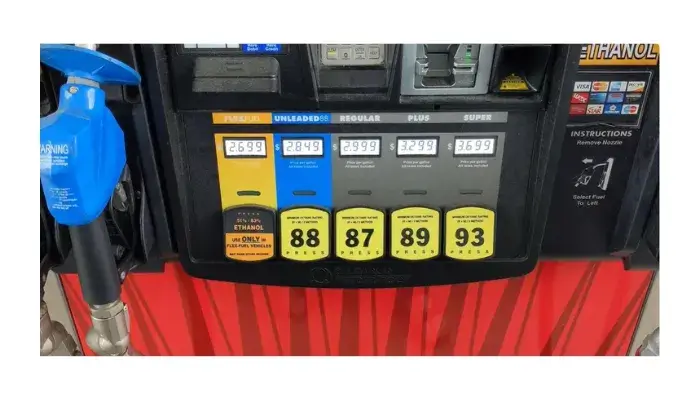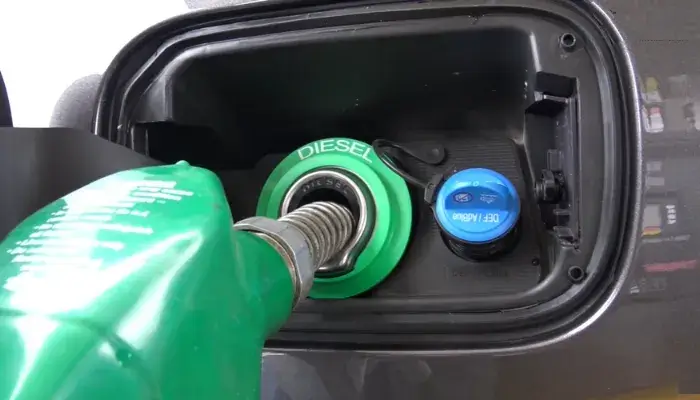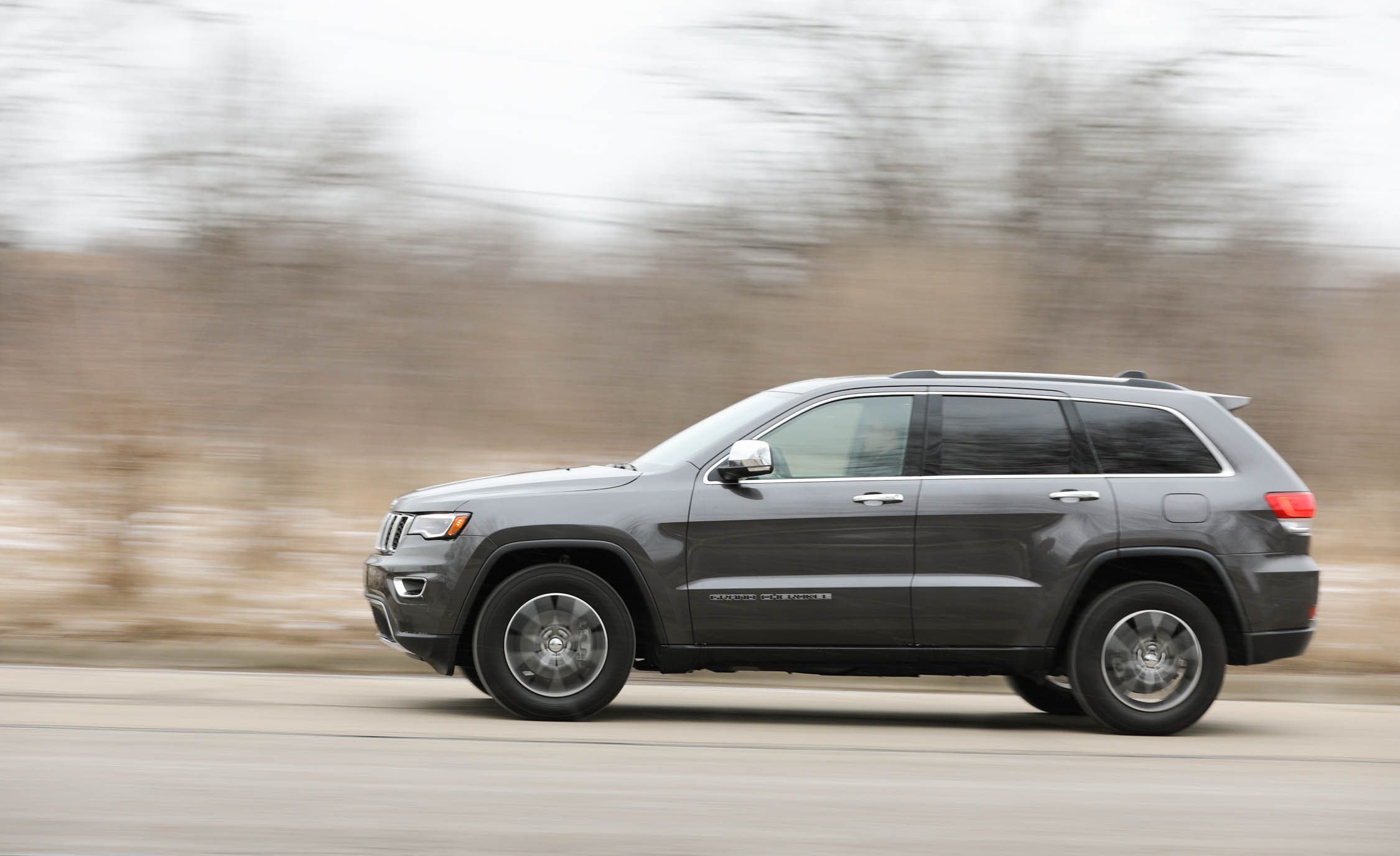A Jeep Grand Cherokee typically uses regular unleaded gasoline with an octane rating of 87. However, some high-performance or specialized models may require premium gasoline with a higher octane rating. It’s essential to check your owner’s manual for the specific fuel recommendations for your Jeep Grand Cherokee model and engine.
In today’s fast-paced world, owning a vehicle is often a necessity, and one of the popular choices for those seeking adventure and comfort is the Jeep Grand Cherokee.
If you’re a proud owner of a Jeep Grand Cherokee, you’re likely enjoying a blend of power, performance, and style. To ensure your Jeep runs smoothly and efficiently, it’s crucial to use the right fuel.
In this article, we’ll delve into the topic of “What kind of gas does a Jeep Grand Cherokee take?” We’ll provide you with all the information you need to make the right choice for your beloved vehicle. Let’s explore this together.

Why Does Octane Rating Matter?
The octane rating indicates a fuel’s resistance to knocking or pinging during combustion. Higher-octane fuel can handle higher levels of compression before igniting, making it essential for high-performance engines like the one in your Grand Cherokee. Using the recommended octane rating helps prevent engine knocking and ensures optimal performance.
Benefits of Using Premium Unleaded Gas
Using the right fuel offers several benefits for your Jeep Grand Cherokee, including:
- Improved Engine Performance: Premium fuel helps your engine operate more efficiently, providing better acceleration and overall performance.
- Fuel Efficiency: It can improve your vehicle’s miles per gallon, saving you money on fuel costs in the long run.
- Reduced Emissions: Using the correct fuel type contributes to lower emissions, benefiting both your vehicle and the environment.
- Engine Longevity: Premium fuel minimizes carbon deposits and engine knocking, which can extend the life of your vehicle.
Jeep Grand Cherokee Fuel Types
Regular Unleaded Gasoline (87 Octane)
Most Jeep Grand Cherokee models run on regular unleaded gasoline with an octane rating of 87. This is the standard fuel choice for everyday driving.
Flex-Fuel (E85)
Some Jeep Grand Cherokee models come equipped with a flex-fuel option, allowing you to use E85, a blend of 85% ethanol and 15% gasoline. It’s an eco-friendly choice but may result in reduced fuel efficiency.
Premium Unleaded Gasoline (91 Octane or Higher)
Certain high-performance Jeep Grand Cherokee trims, such as the SRT and Trackhawk, recommend premium unleaded gasoline with an octane rating of 91 or higher for optimal power and efficiency.
Factors to Consider
Fuel Efficiency
The type of fuel you choose can impact your Grand Cherokee’s fuel efficiency. Regular unleaded gas typically offers a good balance between performance and cost-effectiveness.
Engine Type
Your Grand Cherokee’s engine type also plays a role in determining the ideal fuel. High-performance engines may require premium fuel for peak performance.
Manufacturer Recommendations
Always refer to your owner’s manual or the manufacturer’s recommendations for the specific fuel type your Jeep Grand Cherokee model requires.
Maintaining Your Jeep Grand Cherokee’s Fuel System

Fuel System Maintenance
To keep your Grand Cherokee’s engine in excellent condition, regular maintenance of the fuel system is crucial. This includes changing the fuel filter and using high-quality fuel injector cleaner.
Fuel Additives
Consider using fuel additives approved for your Jeep Grand Cherokee to prevent carbon buildup and maintain optimal fuel system performance.
Tips for Fueling Your Jeep Grand Cherokee
To maintain your Jeep Grand Cherokee’s performance and longevity, consider the following tips:
- Use Top-Tier Gasoline: Opt for gasoline brands that meet top-tier standards, ensuring a high-quality fuel that benefits your engine.
- Regular Maintenance: Keep up with your vehicle’s maintenance schedule to address any issues promptly.
- Avoid Overfilling: Don’t top off the gas tank after the pump clicks off; this can lead to fuel system issues.
2023 Jeep Grand Cherokee Fuel Type
The Jeep Grand Cherokee is a popular SUV that has been on the market for many years. The latest model, the 2023 Jeep Grand Cherokee, will be available with a variety of different fuel types. Here is a look at the fuel types that will be available for the 2023 Jeep Grand Cherokee:
Gasoline – The base model of the 2023 Jeep Grand Cherokee will come with a 3.6-liter V6 engine that runs on gasoline. This engine will be able to produce up to 295 horsepower and 260 lb-ft of torque.
Diesel – A diesel engine will also be available for the 2023 Jeep Grand Cherokee.
This engine is a 3.0-liter turbocharged V6 that produces 240 horsepower and 420 lb-ft of torque.
Electric – For those who want an even more environmentally friendly option, there will also be an electric version of the 2023 Jeep Grand Cherokee available. This SUV will have two electric motors that produce a total of 268 horsepower and 237 lb-ft of torque.
Jeep Cherokee Gas Type
Assuming you would like a blog post discussing the gas type for Jeep Cherokees:
“What Gas Does a Jeep Cherokee Use?
If you own or are considering purchasing a Jeep Cherokee, you may be wondering what kind of gas it requires.
After all, different cars require different types of fuel, and it’s important to know what will work best for your vehicle.
The good news is that the Jeep Cherokee can run on regular unleaded gasoline. This is the most common type of fuel used in today’s vehicles, so it should be easy for you to find and purchase.
Of course, if you want to use a higher-quality gasoline in your Jeep Cherokee, that’s perfectly fine as well. In fact, doing so may even help improve your car’s performance. Just remember that using premium gas won’t necessarily damage your car if it doesn’t require it – but it also won’t necessarily provide any benefits.
Jeep Grand Cherokee Gas Mileage
The Jeep Grand Cherokee is a great vehicle for those who want a powerful SUV that can still get good gas mileage. The base model comes with a 3.6-liter V6 engine that gets an EPA-estimated 29 mpg on the highway and 19 mpg in the city. But if you want even better gas mileage, you can opt for the available diesel engine which gets an EPA-estimated 30 mpg on the highway and 21 mpg in the city.
So whether you’re looking for power or fuel efficiency, the Jeep Grand Cherokee has you covered.

2021 Jeep Grand Cherokee L Fuel Type
The 2021 Jeep Grand Cherokee L comes standard with a 3.6-liter V6 engine that produces 295 horsepower and 260 lb-ft of torque. The optional 5.7-liter V8 engine produces 360 horsepower and 390 lb-ft of torque. Both engines come paired with an eight-speed automatic transmission.
All-wheel drive is available on both models, but it’s not required.
If you’re looking for better fuel economy, the Grand Cherokee L offers a diesel engine option. The 3.0-liter turbodiesel V6 engine produces 240 horsepower and 420 lb-ft of torque while returning up to 30 mpg on the highway*.
This engine is only available on all-wheel drive models, however.
No matter which powertrain you choose, you can expect a smooth and refined ride from the Grand Cherokee L thanks to its well-tuned suspension system. And when properly equipped, this SUV can tow up to 7,200 pounds** making it a great choice for those who need some extra hauling power now and then.
So there you have it – everything you need to know about the fuel options for the 2021 Jeep Grand Cherokee L! Whether you’re looking for maximum power or better fuel economy, there’s an option available to suit your needs. And with its impressive towing capacity, this SUV is ready for just about anything life throws your way!
2022 Jeep Grand Cherokee Fuel Type
The 2022 Jeep Grand Cherokee is set to receive a new engine option. Along with the existing 3.6-liter V6 and 5.7-liter V8, a 3.0-liter turbocharged diesel V6 will be offered. This engine is expected to produce around 260 horsepower and 442 lb-ft of torque.
It will be paired with an eight-speed automatic transmission. Fuel economy numbers have not been released yet, but the diesel engine should offer better efficiency than the gas engines. All-wheel drive will be standard on the diesel model, and it will also be available on the gas models as an option.
The current generation Grand Cherokee has been on sale since 2011, so a refresh for the 2022 model year is overdue. Expect to see a new front end design, updated interior, and additional safety and technology features when it debuts later this year.

Credit: www.caranddriver.com
What Grade of Gas Does a Jeep Grand Cherokee Take?
The Jeep Grand Cherokee takes unleaded gasoline with a minimum octane rating of 87.
Which Jeep Grand Cherokee is Best on Gas?
The Jeep Grand Cherokee is a tough and stylish SUV that’s known for its off-road capability. But which Grand Cherokee is best on gas?
The answer may surprise you: it’s the diesel-powered Grand Cherokee.
The diesel engine is more efficient than a gasoline engine, so it gets better gas mileage. And because the diesel engine produces more torque than a gasoline engine, the Grand Cherokee can tow more weight without sacrificing fuel economy.
If you’re looking for a Jeep Grand Cherokee that’s both stylish and economical, the diesel-powered model is the way to go.
Which Gas is Better 87 89 Or 93?
If you’re wondering which gas is better for your car, 87, 89, or 93 octane, here’s what you need to know.
The octane rating of a fuel is a measure of its ability to resist “knocking” or “pinging” during combustion, caused by the air/fuel mixture detonating prematurely in the engine. In the U.S., unleaded gasoline typically has octane ratings of 87.
Some cars require premium gasoline with an octane rating of 92 or higher because they have high-performance engines that are more susceptible to knocking. The higher the octane rating, the more resistant the fuel is to knocking.
So, if your car requires premium gas, you should use it.
But if your car doesn’t require premium gas, you can save money by using regular gas instead.
Can I Put 89 Gas in My Jeep Grand Cherokee?
If your Jeep Grand Cherokee has a V8 engine, then you can safely use 89 octane gasoline. However, if your Jeep Grand Cherokee has a V6 engine, then you should use 87 octane gasoline.
Things You NEED to Know About Your Jeep Grand Cherokee | Owner Tips & Tricks
Wrapping Up
Choosing the right fuel for your Jeep Grand Cherokee is a simple yet crucial decision that can significantly impact its performance and longevity. By using premium unleaded gasoline with an octane rating of 87 or higher, you’ll ensure that your beloved vehicle continues to provide you with an exceptional driving experience.
Remember, proper maintenance and following the manufacturer’s recommendations are key to keeping your Jeep Grand Cherokee in top shape. So, fuel up, hit the road, and enjoy your Jeep’s outstanding performance. Happy driving!
FAQs
Can I use regular unleaded gasoline in my Jeep Grand Cherokee?
No, it’s not recommended. Using regular unleaded gasoline may cause knocking and reduced performance.
Is it worth the extra cost to use premium fuel?
Yes, the improved performance and fuel efficiency outweigh the additional cost.
What happens if I use a lower octane rating fuel?
Using a lower octane rating can lead to engine knocking and reduced performance.
Can I use ethanol-blended gasoline in my Jeep Grand Cherokee?
Yes, you can use ethanol-blended gasoline, but it’s essential to use the recommended octane rating.
How often should I clean the fuel injectors in my Jeep Grand Cherokee?
It’s a good practice to clean the fuel injectors every 30,000 to 60,000 miles to maintain optimal performance.
What other factors can affect my Jeep Grand Cherokee’s fuel efficiency?
Factors like tire pressure, air filters, and driving habits can influence your vehicle’s fuel efficiency.

